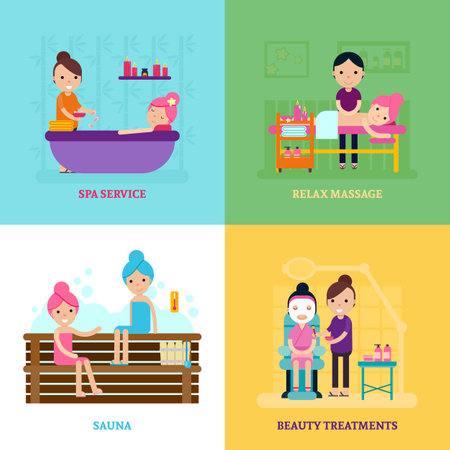Introduction: The Evolving UK Job Market
The UK job market has undergone significant changes in recent years, driven by rapid technological advancements, shifting economic priorities, and the ongoing impact of globalisation. Traditional career pathways are being redefined as employers increasingly value practical skills alongside theoretical knowledge. As a result, both vocational and academic qualifications have become essential components of the talent pipeline. Recent employment trends show a growing demand for specialised skills in sectors such as healthcare, technology, construction, and engineering—areas where vocational training often provides a direct route into employment. Simultaneously, academic degrees continue to hold prestige and open doors to broader career options in fields such as finance, law, and research. In this evolving landscape, understanding the strengths and relevance of each pathway is crucial for individuals aiming to enhance their employability and for organisations seeking to build an agile workforce.
Understanding Vocational Degrees in the UK
Vocational degrees in the UK provide practical and career-focused pathways for individuals aiming to enter the workforce with job-ready skills. Unlike traditional academic qualifications, vocational qualifications are designed to meet the needs of specific industries, bridging the gap between education and employment. The most common vocational options include BTECs, NVQs, and apprenticeships, each tailored to support a range of careers.
Key Types of Vocational Qualifications
| Qualification | Description | Common Career Paths |
|---|---|---|
| BTEC (Business and Technology Education Council) | Coursework-based qualification focused on practical skills; available at various levels from Level 1 to Level 7. | Engineering, Health & Social Care, Business, IT, Media Production |
| NVQ (National Vocational Qualification) | Competency-based qualification assessed in the workplace, recognising skills in real-world settings. | Construction, Hospitality, Childcare, Hairdressing, Plumbing |
| Apprenticeship | Combines paid work with part-time study; offers hands-on experience while working towards a recognised qualification. | Electrician, Accountant, Digital Marketer, Chef, Mechanical Engineer |
The Value of Vocational Training in the Job Market
Vocational qualifications are highly valued by UK employers for their direct alignment with industry needs. They enable learners to gain both technical abilities and soft skills relevant to their chosen field. For those seeking immediate employment or a clear progression route within a specific sector, vocational routes offer efficiency and clarity. With the increasing demand for skilled professionals in sectors like healthcare, construction, and digital technology, vocational degrees play a crucial role in addressing skill shortages across the UK job market.

3. Insights into Academic Degrees
Academic degrees have long been regarded as the traditional route to career success within the UK. A-levels, as a common pre-university qualification, serve as the foundation for entry into higher education and are highly valued by both universities and employers. The pursuit of an undergraduate or postgraduate degree is deeply ingrained in British culture, often seen as a rite of passage that not only equips individuals with specialised knowledge but also fosters critical thinking, analytical skills, and intellectual curiosity. University degrees are associated with a broad spectrum of career pathways, from law and medicine to finance and the creative industries. Moreover, academic qualifications are typically perceived as signals of dedication, discipline, and the ability to thrive in demanding environments. This cultural emphasis on academia reflects longstanding societal values around education as a means of personal and professional advancement. For many sectors in the UK job market, particularly those requiring theoretical expertise or leadership potential, academic credentials remain a key differentiator among candidates.
4. Comparing Employability and Salary Outcomes
When evaluating vocational versus academic degrees in the UK job market, it is vital to examine employability rates, average salary expectations, and sector-specific opportunities. These factors directly influence career decisions for students and professionals alike.
Employability Statistics
According to recent data from the UK Office for National Statistics (ONS) and Higher Education Statistics Agency (HESA), vocational qualifications such as BTECs, NVQs, and apprenticeships often lead to immediate employment after completion. Academic degrees, particularly bachelor’s and master’s, generally offer broader access to graduate schemes but may require additional time before securing a relevant position. The table below summarises key employability outcomes:
| Qualification Type | Immediate Employment Rate (%) | Six-Month Post-Graduation Employment Rate (%) |
|---|---|---|
| Vocational Degree/Apprenticeship | 78 | 89 |
| Academic Degree (BA/BSc) | 65 | 85 |
Average Salary Expectations
Salaries can vary significantly by sector and qualification type. While academic graduates tend to have higher long-term earning potential, vocational graduates frequently start earning sooner due to earlier entry into the workforce. Below is a comparison of average starting salaries:
| Qualification Type | Average Starting Salary (£) |
|---|---|
| Vocational Degree/Apprenticeship | £20,000 – £25,000 |
| Academic Degree (BA/BSc) | £23,000 – £28,000 |
Sector-Specific Opportunities
The value of each qualification type is highly sector-dependent. For instance:
-
STEM & Engineering:
Both vocational (e.g., Higher National Diplomas) and academic degrees are well-regarded. Vocational routes often secure roles as technicians or junior engineers rapidly, while academic graduates may access more advanced positions over time.
-
Healthcare:
NHS trusts increasingly recruit through both degree apprenticeships and traditional degrees. Vocational pathways such as nursing apprenticeships lead directly to registration and employment.
-
Catering & Trades:
Vocational qualifications dominate; employers prioritise hands-on experience over academic credentials.
-
Finance & Professional Services:
Academic degrees remain standard entry requirements for most graduate schemes, though some firms now offer higher apprenticeship routes.
Summary Table: Sector Opportunities by Qualification Type
| Sector | Preferred Qualification Route(s) | Notable Employer Preferences |
|---|---|---|
| Engineering/Manufacturing | Vocational & Academic | Tesco Engineering Apprenticeships; Graduate Schemes at Rolls Royce |
| Nursing/Healthcare | Mainly Vocational with Academic Options | NHS Nursing Apprenticeships; University Nursing Degrees |
| Catering/Hospitality/Trades | Mainly Vocational | Catering Colleges; On-the-job Training Preferred by Employers like Whitbread Group PLC |
| Finance/Professional Services | Mainly Academic with Emerging Vocational Pathways | KPMG 360° Apprenticeship Programme; Traditional Graduate Entry at PwC & Deloitte |
This analysis demonstrates that both vocational and academic routes offer robust employability prospects in the UK job market, but salary progression and sectoral access can vary considerably depending on the chosen pathway.
5. Cultural Perceptions and Employer Preferences
Within the UK, cultural perceptions around vocational and academic qualifications have traditionally shaped both societal attitudes and employer preferences. Historically, academic degrees—such as those from universities—have been viewed as the gold standard, often linked with prestige and broader career opportunities. This bias has influenced generations of students to pursue university routes, sometimes at the expense of practical skills training.
However, recent years have witnessed a marked shift in attitudes. The growing demand for skilled professionals in sectors like engineering, IT, and healthcare has prompted many employers to place greater value on vocational qualifications such as BTECs, NVQs, and apprenticeships. Employers increasingly recognise that these candidates bring practical expertise and hands-on experience, enabling them to contribute productively from day one.
Societal views are also evolving. There is a growing appreciation for the diverse pathways to professional success, fuelled by government initiatives and high-profile campaigns that promote technical education. Nonetheless, some residual stigma remains—particularly in more traditional industries or among older generations—where academic credentials are still seen as a mark of intellectual capability and social status.
Forward-thinking UK companies now focus more on competency and job-specific skills rather than just formal education. Many recruitment processes actively seek out candidates with vocational backgrounds for roles where technical proficiency trumps theoretical knowledge. This pragmatic approach aligns with efforts to bridge the national skills gap and boost productivity across industries.
In summary, while academic degrees continue to enjoy strong recognition in certain circles, the landscape is changing fast. Both employers and society at large are beginning to judge candidates by their actual skills and workplace readiness rather than by traditional hierarchies of qualification—a trend likely to intensify as the UK economy seeks efficiency and adaptability in its workforce.
6. Choosing the Right Path: Practical Considerations
When UK students are faced with the decision between pursuing a vocational or an academic degree, it is essential to weigh up several practical factors to ensure the best possible outcome for their future career. The process begins with honest self-assessment. Understanding your own skillset—whether you excel in hands-on, technical tasks or thrive in analytical, theoretical environments—provides a strong foundation for making this choice.
Assessing Your Skills and Strengths
Reflect on your academic performance and extracurricular activities. If you have a knack for problem-solving, enjoy working with tools or technology, and prefer direct application of skills, vocational pathways such as apprenticeships, BTECs, or NVQs may align better with your strengths. On the other hand, if you excel in critical thinking, research, and written communication, an academic route like A-levels followed by university might suit you best.
Setting Clear Career Goals
Think about where you want to be in five or ten years. Certain professions in the UK job market—such as engineering, healthcare, IT, and trades—are well-served by vocational qualifications that offer quicker routes into employment and hands-on experience. Alternatively, careers in law, medicine, academia, or policy often require a traditional academic background and advanced degrees.
Considering Personal Circumstances
Your financial situation, learning style, and support network are also crucial considerations. Vocational courses often allow you to earn while you learn and can lead to lower student debt. Academic degrees typically demand more time in full-time study but may open doors to higher-earning roles in the long term. Additionally, consider whether you prefer structured classroom environments or practical workplace settings.
Utilising Available Resources
Take advantage of resources such as school career advisors, local job fairs, and online tools like the National Careers Service. Work experience placements and internships can also provide valuable insight into different sectors. Engaging with employers through schemes like T Levels or industry-led apprenticeships can clarify expectations and help shape your decision.
The Value of Flexibility
Remember that choosing between vocational and academic paths is not always a permanent decision; many UK qualifications are designed with flexibility and progression routes in mind. For example, foundation degrees and Higher National Diplomas (HNDs) can be topped up to full honours degrees later on.
Final Thoughts
The right path depends on aligning your unique abilities and ambitions with realistic opportunities in the UK job market. By taking a systematic approach—assessing skills, clarifying goals, considering personal circumstances, leveraging resources, and remaining adaptable—you can make an informed decision that sets you up for professional fulfilment and long-term success.
7. Conclusion: Future Trends in UK Education and Employment
The dynamic relationship between vocational and academic education in the UK job market continues to evolve, shaped by shifting employer demands, technological advancements, and changing societal perceptions. As industries adapt to digitalisation and automation, both pathways now offer distinct advantages that can drive career success. Vocational qualifications are increasingly recognised for their practical focus and direct alignment with industry needs, helping close skills gaps in sectors such as healthcare, engineering, and IT. Meanwhile, academic degrees maintain their value for roles requiring analytical depth and theoretical knowledge, particularly within research, policy, and specialised professions. Looking ahead, hybrid models—such as degree apprenticeships—are gaining traction, blending hands-on experience with rigorous academic study. This trend reflects a broader acceptance that multiple educational routes can deliver high-calibre talent tailored to diverse workforce needs. For students and professionals navigating these choices, the key is to assess long-term goals, personal strengths, and the evolving demands of the UK labour market. Ultimately, the future of UK education and employment lies in flexibility, continuous learning, and a balanced appreciation of both vocational skills and academic achievement.


